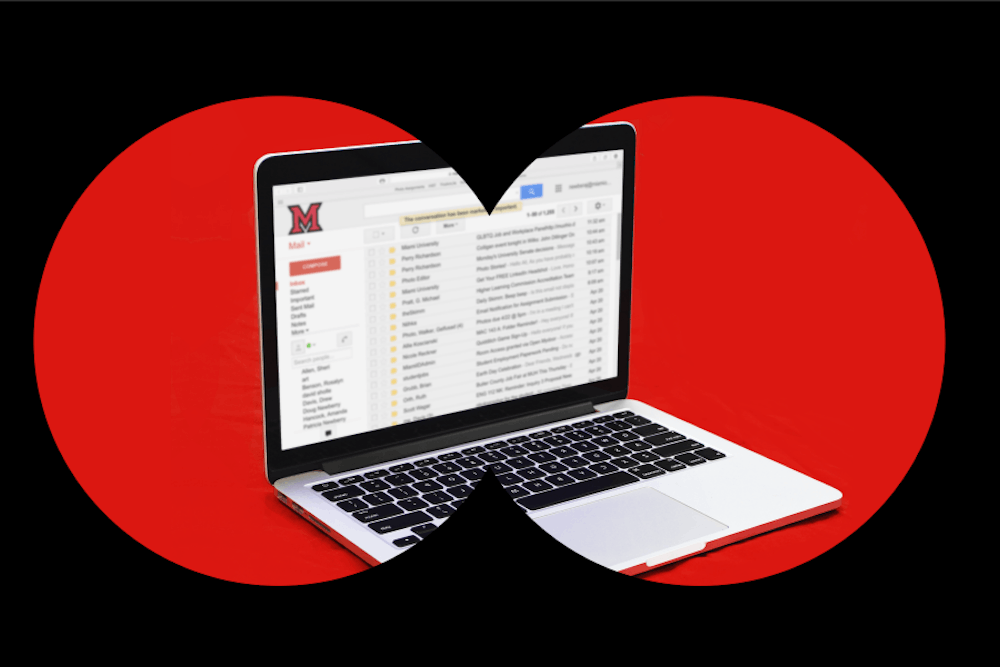By Sarah Knepp, For The Miami Student
In the wake of 2016 Presidential Candidate Hillary Clinton's email scandal, Miami University students may want to watch what they are sending over their own email accounts. Miami has its own method of monitoring and accessing students' accounts, including email activity.
Eight people in IT Services are able to access information in an email account belonging to anyone on campus, including students, faculty and staff. Typically, these employees access email accounts to recover an account on a computer that crashed, not for the violation of a university policy.
Joe Bazeley, an IT Services security manager, intervenes when a member of the Miami community misuses his or her Miami email account.
"I only access email accounts of students, faculty and staff when Miami is conducting an investigation," Bazeley said.
He added that these investigations can originate from the Office of Ethics and Student Conflict Resolution, the Office of Equity and Equal Opportunity, the Department of Human Resources or the Office of the General Counsel.
Both the Student Handbook and the Miami University Policy and Information Manual dictate what is subject to be worthy of an investigation by administration, academic departments and IT Services.
The Student Handbook clearly lists specific activities that are strictly prohibited to participate in using a Miami email account. These include, but are not limited to, hacking into an account, accessing and editing an unauthorized file and breaking any federal, state or local law.
The Privacy and Security Section of the Policy and Information Manual further describes the way in which any activities of these types would be monitored and even discovered in the first place.
According to this section, all of our activity on Miami email accounts is, to some extent, being monitored - either through logging activity, data caching, backing up the system, monitoring patterns of usage or any other action that is needed to keep the system running smoothly.
In terms of individual security, the university has the ability to monitor the activity of an individual if he or she is in violation of one or more of the rules in the Student Handbook.
If someone is suspected to be violating the law, authorities such as Bazeley step in and find proof. He uses a specific process to try and find information that the university is looking for.
Enjoy what you're reading?
Signup for our newsletter
"Before I go into someone's account, I will have keywords and dates that I am searching for," he said.
Once he enters those keywords regarding a certain email account, he will get a result. He reports his findings to whomever was requesting he access someone's account in the first place.
"If the given keywords and time ranges do not provide any hits, I'll communicate that back to the requesting department," he said.
Sophomore Molly Green said she considers this practice invasive.
"It's kind of an invasion of privacy, but almost everyone knows the university does it, so if [students] want to send bad stuff through email they would do it through another account," Green said.
However, some students, like sophomore Tina Jokerst, think the practice is justified.
"They're administered through the school, so it makes sense that they would monitor our activity," Jokerst said.




